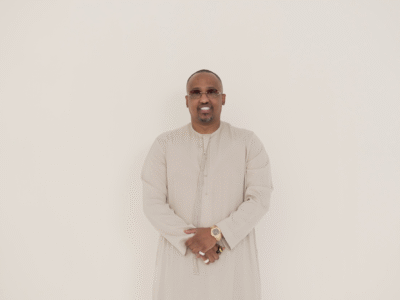Vision 2030 and Beyond: How Saudi Arabia is Cultivating a New Generation of Entrepreneurs
In 2016, Saudi Arabia launched Vision 2030, an ambitious reform plan aimed at reducing the kingdom’s dependence on oil, diversifying its economy, and developing public service sectors such as health, education, infrastructure, recreation, and tourism. Central to this vision is fostering a vibrant entrepreneurial ecosystem to stimulate economic growth and employment. This article explores how Saudi Arabia is cultivating a new generation of entrepreneurs through Vision 2030, highlighting the strategies, initiatives, and outcomes of this transformative agenda.
Building an Entrepreneurial Ecosystem
Vision 2030 recognizes the crucial role of entrepreneurship in driving economic diversification and innovation. To this end, Saudi Arabia has been actively developing an ecosystem that nurtures business creation and growth. This ecosystem is characterized by comprehensive support in the form of funding, mentorship, legal frameworks, and an emphasis on digital technology.
Access to Capital and Funding
Recognizing that access to capital is a critical factor for business success, Saudi Arabia has significantly expanded funding avenues for startups. The Saudi Arabian General Investment Authority (SAGIA) offers various incentives for domestic and foreign investors. Meanwhile, government-funded venture capital firms and programs like the Saudi Venture Capital Company (SVC) and the Small and Medium Enterprises Loan Guarantee Program (Kafalah) help entrepreneurs overcome financial barriers.
Moreover, the Saudi Public Investment Fund has established a $1 billion fund to invest in SMEs, which plays a pivotal role in fostering innovative projects. These initiatives are complemented by private sector growth, with numerous accelerators, incubators, and angel investors emerging across the kingdom.
Regulatory Reforms and Ease of Doing Business
Vision 2030 has brought significant regulatory reforms aimed at making Saudi Arabia more business-friendly. These include simplifying the process of starting a business, reducing the requirements and time to obtain licenses and permits, and enhancing the legal framework to protect investors and intellectual property rights. For example, the introduction of the ‘Sajil’ commercial registration system has streamlined commercial registration processes, drastically reducing the time required to start a business.
Education and Training
Saudi Arabia has invested heavily in education and training to equip its young population with the skills needed for the future economy. Educational reforms focus on entrepreneurship and innovation, emphasizing STEM education and critical thinking. Universities and technical schools are now closely aligned with industry needs, providing practical skills and business acumen.
Partnerships with global institutions and corporations have also been established to enhance educational outcomes. Initiatives like the Misk Foundation, founded by Crown Prince Mohammed bin Salman, offer programs that train youth in leadership, entrepreneurship, and digital skills crucial for the modern workplace.
Technology and Innovation Hubs
At the heart of Vision 2030 is the push towards a digital economy. Saudi Arabia is rapidly developing technology and innovation hubs, such as the King Abdullah Economic City and Neom, a planned $500 billion mega-city that promises to be a hub for innovation. These hubs are equipped with state-of-the-art facilities and infrastructure to support high-tech startups and attract global tech talent.
Women Entrepreneurs
Vision 2030 also explicitly aims to increase the participation of women in the workforce, including entrepreneurship. Initiatives such as the ‘10×10’ program, which aims to position Saudi women among the top ten in global competitiveness, have been critical. Reforms have allowed women to drive and travel independently, significantly impacting their ability to do business. Supportive measures such as funding, training, and networking specifically tailored for women entrepreneurs are fostering a more inclusive economic environment.
Challenges and Future Directions
Despite significant progress, challenges remain. These include cultural shifts required to embrace risk and innovation, bureaucratic inertia, and the ongoing need to develop a deeper venture capital market. However, Saudi Arabia is actively addressing these challenges through continuous policy adjustments and international collaborations.
Conclusion
Saudi Arabia’s Vision 2030 has set the stage for a transformative economic landscape driven by entrepreneurship and innovation. By investing in education, easing business operations, and fostering a supportive ecosystem, the kingdom is not just diversifying its economy but also empowering a new generation of entrepreneurs to dream big and innovate. As Vision 2030 continues to unfold, its focus on cultivating entrepreneurial talent is likely to have a lasting impact on the region’s economic and social fabric, signaling a promising future for the Saudi economy and its people.


















